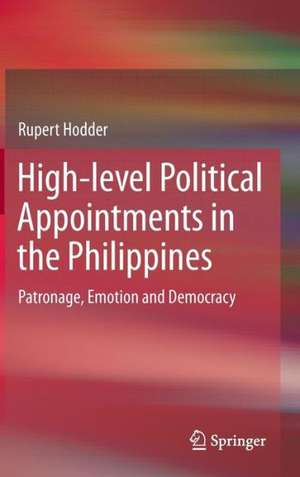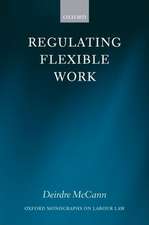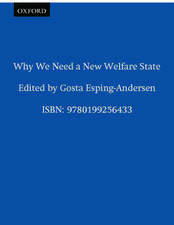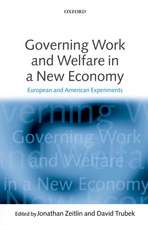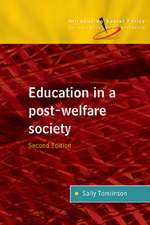High-level Political Appointments in the Philippines: Patronage, Emotion and Democracy
Autor Rupert Hodderen Limba Engleză Hardback – 22 oct 2013
| Toate formatele și edițiile | Preț | Express |
|---|---|---|
| Paperback (1) | 381.81 lei 6-8 săpt. | |
| Springer Nature Singapore – 18 sep 2016 | 381.81 lei 6-8 săpt. | |
| Hardback (1) | 389.11 lei 6-8 săpt. | |
| Springer Nature Singapore – 22 oct 2013 | 389.11 lei 6-8 săpt. |
Preț: 389.11 lei
Nou
Puncte Express: 584
Preț estimativ în valută:
74.45€ • 77.74$ • 61.48£
74.45€ • 77.74$ • 61.48£
Carte tipărită la comandă
Livrare economică 15-29 aprilie
Preluare comenzi: 021 569.72.76
Specificații
ISBN-13: 9789814560047
ISBN-10: 9814560049
Pagini: 150
Ilustrații: X, 174 p.
Dimensiuni: 155 x 235 x 17 mm
Greutate: 0.44 kg
Ediția:2014
Editura: Springer Nature Singapore
Colecția Springer
Locul publicării:Singapore, Singapore
ISBN-10: 9814560049
Pagini: 150
Ilustrații: X, 174 p.
Dimensiuni: 155 x 235 x 17 mm
Greutate: 0.44 kg
Ediția:2014
Editura: Springer Nature Singapore
Colecția Springer
Locul publicării:Singapore, Singapore
Public țintă
ResearchCuprins
Introduction.- Chapter 1: Introduction - Patronage and Development.- Chapter 2: Patronage and Politics.- Chapter 3. Patronage and Appointments in the Philippines.- Chapter 4: Dimensionality.- Chapter 5: Competition.- Chapter 6: Re-casting Patronage - Organizations.- Chapter 7: Re-casting Patronage - Merit.- Chapter 8: Conclusions.
Notă biografică
Rupert Hodder was born in Ibadan, Nigeria, and educated in England and Hong Kong. He has lived and worked in many parts of East and South East Asia, including China, Malaysia and the Philippines. He is currently a Reader at the University of Plymouth, UK., having previously held posts at the LSE and The Chinese University of Hong Kong, and visiting posts at La Salle Institute of Governance, Manila, and at the College of Law, Government and International Studies, Universiti Utara Malaysia. He is the author of numerous works that have appeared in Asian Journal of Social Science, Asian Studies Review, Government and Policy, Southeast Asia Research, The Pacific Review, The Far Eastern Economic Review and the Salisbury Review amongst other journals. He is also the author of Emotional Bureaucracy, Merchant Princes, Between Two Worlds, In China’s Image, and The West Pacific Rim.
Textul de pe ultima copertă
This book questions the belief that patronage explains poor governance and weak organizations. Its focus is on high-level political appointees in the Philippines, but its implications for development processes and policy are far-reaching. Patronage stimulates the emergence of democracy and welfare, and constitutes formal organizations. So intimately connected is it with the health of democracy and effective organizations that attempts to eradicate patronage only harm social, organizational and democratic life. In developed societies this has meant a growing Puritanism interspersed with bouts of corruption and moral panic; and, as they seek to maintain effective organizations and vibrant democracies, a mounting desire to project their own anxieties and imperfections onto developing countries.
Caracteristici
Provides a novel and challenging understanding of patronage and its role in democracy, development, and effective organizations Offers a new understanding of ‘developed’ and ‘developing’ societies Presents empirical information on a key feature of Philippines government - the selection of high-level civil servants and political appointees Based on interviews with high-level political appointees
